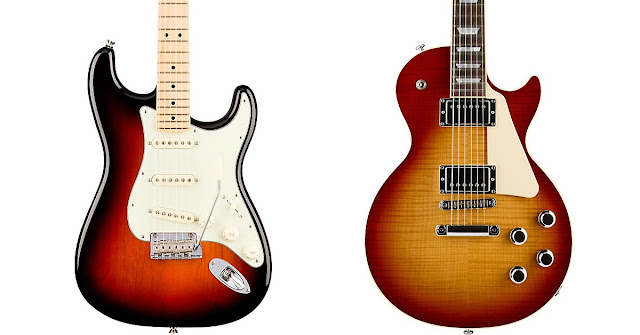Les Paul or Stratocaster: Which Guitar Is Right for You?

Ask the average person to describe or sketch an electric guitar and chances are they’ll come up with something that resembles either a Fender Stratocaster or Gibson Les Paul. These two guitars are imprinted on our collective consciousness for good reason. Ever since their introductions in the 1950s, the Strat and the LP have largely ruled the electric guitar roost. Both offered revolutionary improvements in both playability and sonic performance. Each is a completely different and much-copied design; their tone and playing feel completely distinct. Here’s a list of those differences: Scale length A big difference between the Stratocaster and the Les Paul is their scale length—the length of the strings measured from the nut to the bridge. The Les Paul is 24.75 inches versus the Stratocaster’s longer 25.5 inches. This has an impact on both sound and playability. A longer scale length results in more space between the frets and greater string tension making it a little more


